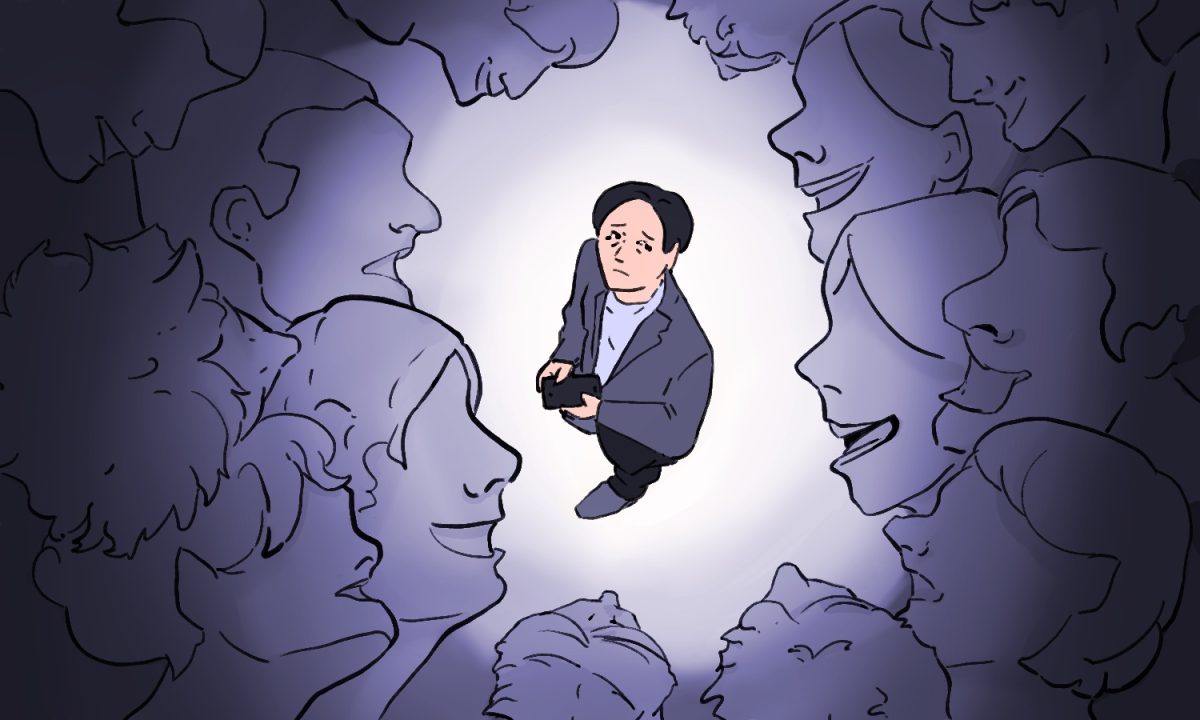The Rocky Mountain Biological Anthropology Association held its third annual conference Saturday, Oct. 5, at the SpringHill Suites Denver Downtown on the Auraria Campus. RMBAA is one of the many biological anthropology organizations around the nation that focuses on creating a student-centric, low-pressure environment for undergraduate and graduate students to present their research.
“One of the things that we wanted to create was a student-centered organization where students have a lower-pressure environment to present some of the work that they’ve done,” said Todd Yokley, president of RMBAA and associate professor at Metropolitan State University of Denver. “And I think we’ve achieved that so far.”
The conference featured two keynote speakers: Regis University Professor Amy Schreier and Colorado State University Assistant Professor Dr. Andrew Du. There were also two poster sessions held for undergraduate and graduate students to share their research. People in attendance were also given the opportunity to participate in a professional workshop focused on cover letters, resumes and personal statements.
The first half of the conference focused on primatology, the study of nonhuman primates. Schreier’s talk, titled, At the forest’s edge: field schools and the fight to conserve primates, focused on her behavioral ecology and conservation research project that took place in northeastern Costa Rica at La Suerte Biological Field Station and La Selva Research Station. The primary focus of the research was mantled howler monkeys and the impact of forest fragmentation on these primates.
Schreier emphasized the difficulties primates face living in human-altered forests. The groups of primates in the forest are estimated to reduce competition to secure food resources in less-than-ideal habitats. The best way primates can do this is by changing the amount of time they spend eating, sleeping and traveling.
“Behavioral flexibility is going to be important for animals to persist in changing environments,” Schreier said.
Schreier made note of the challenges these monkeys faced in maintaining dense populations in forest fragments along with the importance of forests for conservation.
“Biological field stations play a pivotal role in addressing some of the most critical environmental problems that we face,” Schreier said.
Schreier then mentioned a survey of 150 primatologists in 50 countries and the impact field stations had on conservation.
“Field stations improved habitat quality and reduced hunting rates at over 80% of field stations,” Schreier said. “Fuel stations also have lower operational costs per square kilometer than other protected areas, and also, forest cover loss was lower near field stations, with about 10% reduction in forest cover loss compared to nearby areas.”
The first student poster session featured student research in paleoanthropology and primatology. Regis University environmental science students Josephine Weiler and Hayden Pearson shared their experience presenting as undergraduate researchers.
“I think this being … a smaller conference and being mostly students, … it’s a really great place to, like, learn how to do this kind of thing with a good, … safe crowd that understands,” Weiler said.
Pearson expressed a similar sentiment, highlighting the crowd size in particular.
“It’s a very good learning process,” Pearson said. “I would want this experience, but it was different than how I expected. I expected, like, a smaller panel, … but it was kind of like all 60 (or) 70 people that were here, so that was a little bit different (than anticipated). But I’m glad that, like, I was able to still do that.”
The second poster session focused on archaeology, molecular anthropology and forensic anthropology, followed by a talk by Du, titled, The Paleoecology Agenda for Paleoanthropology. Paleoecology is the study of ancient ecosystems and environments. It looks at how prehistoric plants and animals interacted with the environment over time. Paleoanthropology primarily studies the fossils of human ancestors and their evolution.
Yokley delivered the closing remarks for the conference and announced the winners of the student award. Both students received a $200 Visa gift card. The winners were biological anthropology Ph.D. student Yuting Gao from the University of Colorado Boulder for her research, Investigating variation in cercopithecoid oral microbiomes, and undergraduate biology student John A. Nguyen from Regis University for his research, Mantled howler monkey (Alouatta palliata) behavior in primary versus secondary forests at La Selva, Costa Rica.
Du expressed his concern for students wanting to pursue fields in anthropology.
“My fear is, … our field has just become so filled with people that, now, the competition has trickled down where undergrads feel like they need to … boost their CV so they’d be competitive for grad school,” Du said. “But having that much stress at the undergrad level — I think is a lot.”
Reach Chace Silvey at entertainment@collegian.com or on Twitter @CSUCollegian.









